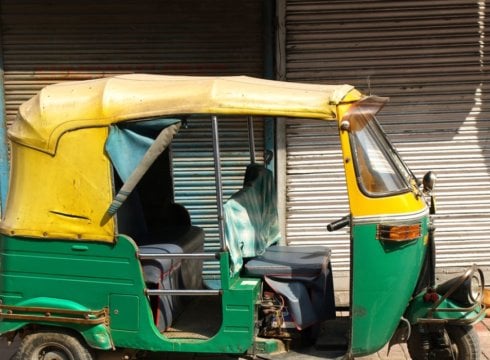Inc42 Daily Brief
Stay Ahead With Daily News & Analysis on India’s Tech & Startup Economy
Auto-rickshaws are one of the most common sights on Indian roads. We need them; we hate them.
While some of us might be able to guess that there are more than 50 Lakh auto-rickshaws on Indian roads, not a lot of us know that they spend 70% of the working day looking for work. Thus, there are about more than 30 Lakh willing and able drivers being wasted every day.
Let’s dig deeper.
Commuters associate auto-rickshaw drivers with preconceived notions such as refusals, overcharging, rude behaviour and so on. Yet, as one of the most ubiquitous sources of last mile transportation, they continue to co-exist. Given this love-hate relationship, it’s clear that commuters are dying for better alternatives.
Commuters don’t want autos to say no to smaller rides, they want all the autos to take them at government-controlled meter rates. They don’t want to haggle and negotiate every time they are told the fare.
From the auto-rickshaw driver’s perspective, given the inadequate demand (an average auto-rickshaw driver does around six-seven rides a day), they are pushed to get as much as they can from the few takers.
No fixed income, crushing work hours, no support system, struggling to spend time with their families; life is hard for these drivers who come to work every day expecting to save enough for the next day.
Overall, the system is caught in a vicious circle. Whenever a disruptive force such as taxi or auto aggregators with a much better experience enter the landscape, they agitate and further alienate the few customers they get.
In the last one week, auto unions used strikes as a medium to bring 15+ cities including Gurgaon, Indore, Nasik, Nagpur, Pune among others to a standstill.
Auto-rickshaws Versus Auto Aggregator Space
After closely following the demands of these agitating unions several things came to light. For instance, in Indore, they wanted Jugnoo and other auto aggregators to increase the fares so that auto drivers associated with Jugnoo, Tuktuk and others start getting less business. But what they do not understand is that most of these customers who have got used to the convenience of aggregators won’t go back to them. They would prefer moving to taxi aggregators who are offering the similar doorstep convenience at slightly higher prices.
It’s clear that things have reached a tipping point across many cities whereby technology via auto and taxi aggregators, has started making a sizeable impact on their earnings.
Auto-rickshaw aggregation platforms are actually helping them fight disruption. Since most of these platforms are marketplaces, they continuously want more auto-rickshaws to get associated with them as the demand grows. In fact, I can go ahead and safely claim that technology platforms are not cannibalising their existing business but creating additional demand. Demand that gets attracted by the fact that their interface with the ubiquitous auto-rickshaws can be convenient, affordable and safe.
While the per km running cost for the end customers is lesser, the fact that the utilisation for drivers can increase to 60-80% implies that the overall daily earnings are a lot more.
Given that most of the auto drivers have significant fuel costs and rent/EMIs to pay every day, a linear increase in earnings leads to an exponential increase in savings.
A lot of auto drivers have already realised this. Around 200 Jugnoo drivers in Indore went to the local SP after the union strikes ended last week, seeking protection from their fellow auto drivers.
It’s safe to assume that the convenience provided by cab aggregators, improving public transport facilities and promotion of strikes among autos by vested interests is slowly making the everyday existence of auto-rickshaws really difficult, killing auto-rickshaws as they exist at present.
Now it’s for them to decide whether they get disrupted, or change according to the changing realities and continue moving India from one point to another. The stakes are too large for India to standby and witness the systematic killing of the livelihood of 50 Lakh auto-rickshaw drivers and the 2 Cr passengers dependent on them.
Companies such as Jugnoo, Tuktuk and AUTOnCAB have shown promise but the journey has just started. Just Jugnoo’s 40,000 daily auto rides are a tiny fraction of the total number taking place every day.
While we always rally around our drivers with Taxi ko bhagana hai aur auto ke astitav ko bachaana hai (Destroy the taxi, save the identity of the auto-rickshaw) we know that the biggest threat for auto-rickshaws is actually status quo.
Note: We at Inc42 take our ethics very seriously. More information about it can be found here.


